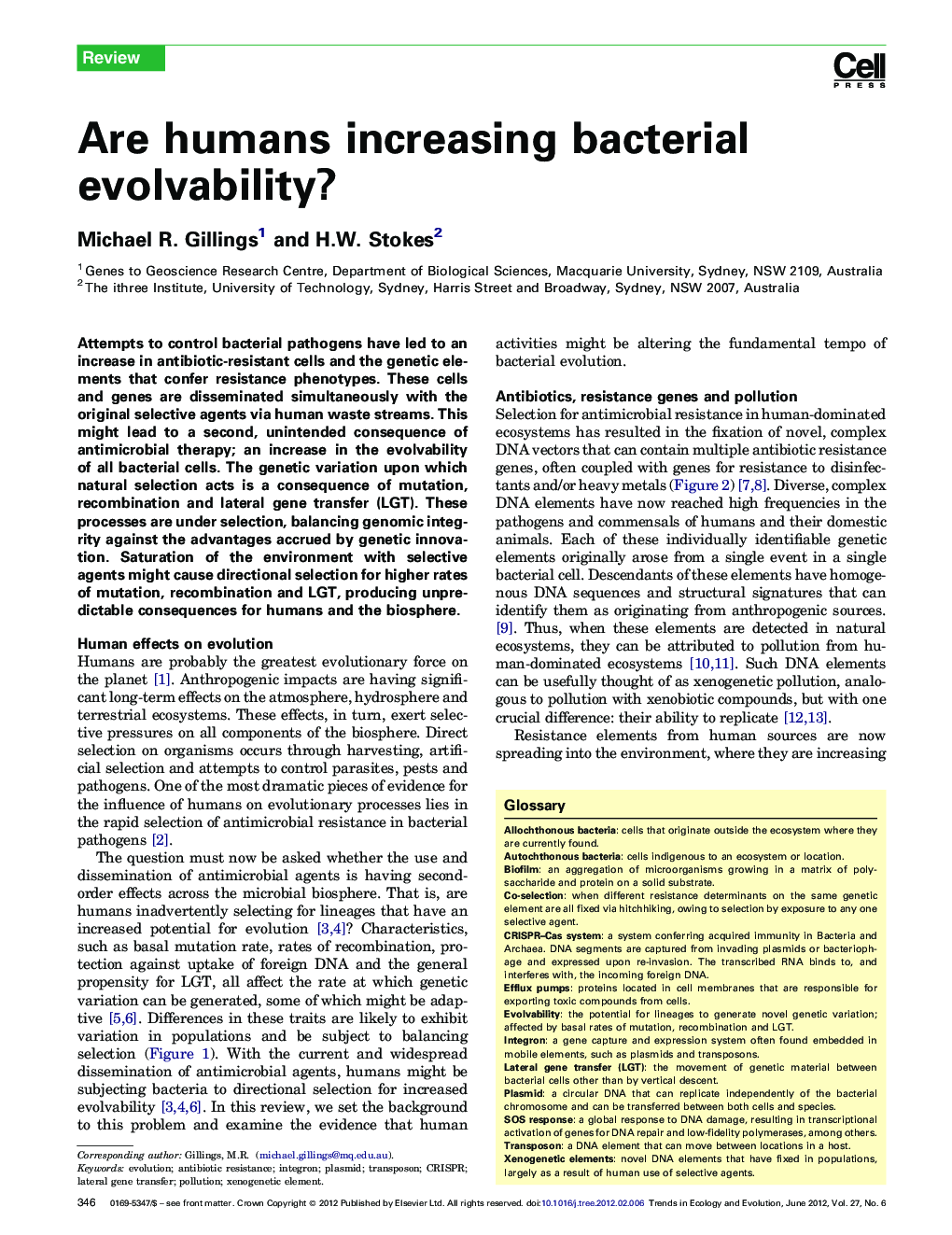| Article ID | Journal | Published Year | Pages | File Type |
|---|---|---|---|---|
| 143064 | Trends in Ecology & Evolution | 2012 | 7 Pages |
Attempts to control bacterial pathogens have led to an increase in antibiotic-resistant cells and the genetic elements that confer resistance phenotypes. These cells and genes are disseminated simultaneously with the original selective agents via human waste streams. This might lead to a second, unintended consequence of antimicrobial therapy; an increase in the evolvability of all bacterial cells. The genetic variation upon which natural selection acts is a consequence of mutation, recombination and lateral gene transfer (LGT). These processes are under selection, balancing genomic integrity against the advantages accrued by genetic innovation. Saturation of the environment with selective agents might cause directional selection for higher rates of mutation, recombination and LGT, producing unpredictable consequences for humans and the biosphere.
